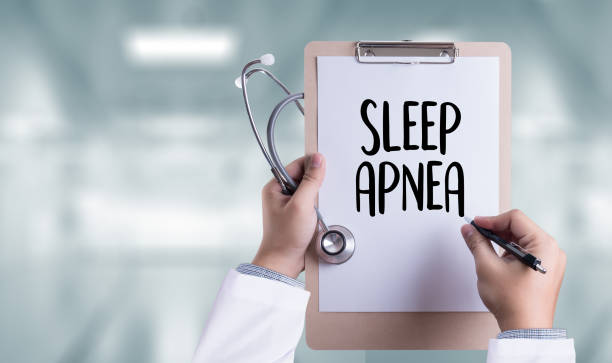If you're tired all the time, it might be because you have sleep apnea. Sleep apnea is a disorder that causes brief interruptions in breathing while you sleep. These interruptions can happen as many as 30 times an hour, with each one lasting 10-20 seconds. That's why people with sleep apnea are often tired during the day and don't get a good night's rest at night—they only get “breaks” from their symptoms when they take deep breaths or wake up briefly so their bodies can get oxygen.
What is sleep apnea?
Sleep apnea is a common disorder in which breathing repeatedly stops and starts during sleep. It can lead to serious health problems if left untreated.
The condition occurs when your airway collapses or becomes blocked, causing you to wake up briefly as you struggle to breathe. These breathing pauses typically last between 10 to 20 seconds and can occur hundreds of times a night, which affects your normal sleep pattern. When people spend less time in deep sleep and more time in light sleep, they generally will become less energetic, mentally sharp and productive the next day.
What is sleep apnea?
Sleep apnea is a common disorder that occurs when you stop breathing or take shallow breaths while sleeping. It causes your airway to collapse or become blocked, which prevents normal breathing. Sleep apnea can lead to serious health problems if left untreated, including high blood pressure and heart disease.
The condition can be treated with lifestyle changes, such as losing weight if you are overweight; using a continuous positive airway pressure (CPAP) device (a small machine that pumps air into your nose to keep your airways open); or surgery if those strategies don't work well enough for you.
Types of sleep apnea
- Obstructive sleep apnea (OSA) is the most common type of sleep apnea, and it occurs when airways become blocked or narrowed during sleep.
- Central sleep apnea (CSA) happens when your brain doesn't send the right signals to your breathing muscles to breathe, so you stop breathing for a short time. This can be due to damage from stroke or other brain issues, but it also may happen while you're sleeping as well.
- Complex sleep apnea occurs when people have both types of obstructive and central apneas at once—sometimes called mixed OSA—or just one type plus another condition like gastroesophageal reflux disease (GERD).
Symptoms of sleep apnea
The most common signs of sleep apnea are loud snoring punctuated by gasping or choking sounds and waking up gasping for breath. Other symptoms include:
- Morning headaches
- Daytime sleepiness
- Fatigue
- Headaches in the morning that may persist for several hours after waking up
Other signs that may indicate the presence of sleep apnea include dry mouth and sore throat upon awakening, and reduced focus and difficulty concentrating. Because many of these symptoms can also be caused by other health issues, it's not possible to diagnose sleep apnea solely based on symptoms alone.
Causes of sleep apnea
Sleep apnea is caused by a blockage of your airway that prevents you from breathing normally during sleep. The most common type is called obstructive sleep apnea (OSA). It happens when the muscles in the back of your throat relax, reducing space for air to pass through. When this happens, soft tissues collapse and block airflow into the lungs.
If your airways are blocked, they can't get enough oxygen and carbon dioxide out of your body, leading to serious health consequences over time.
Snoring is common in people with sleep apnea due to the narrowing of the airway and when it's obstructed by excess tissue or fluid during sleep.
Risk factors for sleep apnea
- Obesity: people with a higher body mass index (BMI) are at a greater risk of developing sleep apnea
- Male gender: male are more likely to have sleep apnea, especially in their earlier stages of adulthood
- Cigarette smoking: Some research has identified a noticeably higher risk of sleep apnea in people who smoke cigarettes compared to those who have quit or have never smoked
- Age: The risk of sleep apnea increases with age until a person is in their 60s and 70s
- Family history of sleep apnea. If you have a parent or sibling who has had one of these problems, you're more likely to get it yourself. Sleep apnea can sometimes run in families.
If you think you might have sleep apnea, it’s important to talk to your doctor about testing. Sleep apnea can be treated with CPAP (continuous positive airway pressure) machines that help keep the airways open during sleep.

